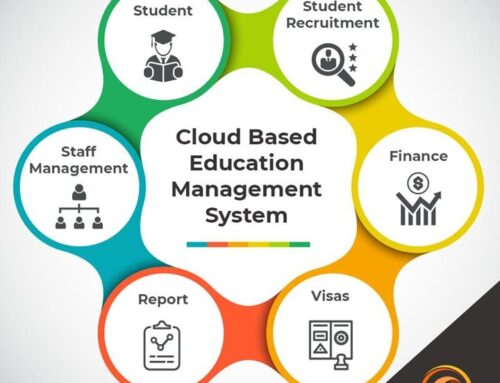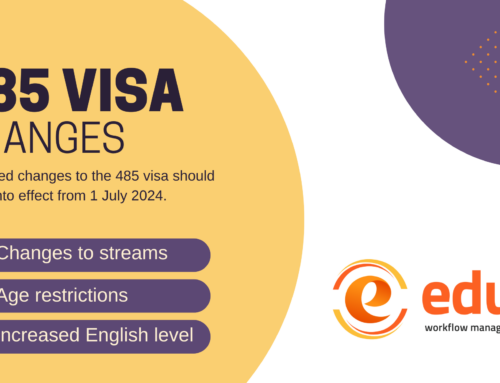Reality check – what is the real price for international students in Australia?
There has been a lot of discussion about international education and international students, however, there have not been any reports or news from the perspective of the students.
So let’s take a look at studying in Australia, or anywhere abroad, from the perspective of an international student for a moment. Many students leave their families and homes to travel across the world to access the quality education in Australia has to offer. They sacrifice so much to fulfil their ambitions, yet there has to be a bottom-line. These hopes and dreams have a real price tag and there are hidden costs students face in accessing international education.
Over the past twenty years, Australia has become a popular travel destination, primarily because of its favorable lifestyle, close proximity to Asia, and high level of safety. The majority of students choose to pursue their education in Australia as their academic destination. Additionally, up until relatively recently, there were significantly more opportunities for international students to obtain permanent residency in Australia.
Studying abroad has long been an aspiration for countless individuals seeking to broaden their horizons and pursue quality education in foreign lands. However, it’s crucial to conduct a reality check regarding the real price tag associated with studying in Australia.
The beginning:
Once an international student decides that he or she wants to study abroad, they start looking around for information. With access to the internet, information is quite easily available these days. However, many international students do opt in for the services of an education agent or educational consultant.
While some approved counsellors work free of charge because they get paid through commissions from tuition fees (which vary from 15% up to 40%), some agents charge fees for their services. According to our observations, the price can range anywhere from a couple hundred dollars to several thousand dollars. Prospective students should always check for any additional fees and request clear information about all of the fees that are payable in order to avoid any unexpected fees that are avoidable or unnecessary. (Preferably, enter into a written agreement with the agent).
Tuition fees:
Application fees for selective courses are typically charged by the majority of educational providers in Australia, and the range of these fees is from AUD$200 to AUD$500. Students are required to pay this application fee in advance, regardless of the outcome of the application process, as it is a non-refundable fee. Individuals who submit applications to multiple providers are required to pay for each application. In this particular instance, we are obligated to give credit to (some) educational agents who assist in selecting only one or two providers for the application.
The time it takes for the applicant to receive a response can range anywhere from a few days to several weeks, depending on the provider (typically high-profile universities or TAFEs). Students may, unfortunately, end up submitting more applications than they require as a result of this development. With regard to the likelihood of acceptance or the ratio of applications to available spots, universities provide very little information. A significant number of students have a low probability of being accepted, and they are essentially paying for the fact that they were rejected. The current government policy also does not help, which leads to further delays.
Depending on the type of course, the annual tuition fee can range anywhere from AUD$6,000 for general business courses to AUD$12,000 to $15,000 for trade courses, up to AUD$25,000 for specialised courses, and up to several hundreds of thousands for medical or training courses.
Proving English proficiency:
The Australian Government has made changes to English Language Requirements for Student and Temporary Graduate visas. This change was announced as part of the Australian Government’s Migration Strategy released on 11 December 2023 and applies to all Student and Temporary Graduate visa applications lodged on or after 23 March 2024.
The International English Language Testing System (IELTS) or a test that is comparable costs between AUD$400 and $450. Many students are required to physically travel to test centers, which incurs additional costs, and students simply have to pay to proceed. In addition, the test is valid for a period of two years, after which it will expire, and one might be required to take it once more in order to apply for additional visas or jobs.
Immigration Visa Charges (VAC):
The immigration visa charges, an unavoidable expense for international students. For the initial application, students are required to pay AUD$710 plus a credit card surcharge. If additional visa are lodged in Australia, than there is an additional fee of AUD$700 plus the credit card surcharge per application. Bringing family members along incurs an additional AUD$530, equating to $175 per applicant.
Insurance Fees:
One of the significant financial burdens for international students in Australia is health insurance or Overseas Students Health Cover (OSHC). For a single person, the annual insurance fee ranges from AUD$600 to AUD$700, averaging around AUD$50 to AUD$60 per month. It’s important to note that this fee covers the entire duration of the stay, including holidays of 1-2 months, depending on the length of the course.
For families consisting of two adults and one child, the monthly insurance fee can skyrocket to anywhere between $556 to an astonishing $814. For a two-year stay plus two months of holidays, families may need to pay upfront a staggering $24,300 for insurance with providers like BUPA. Furthermore, many essential expenses may not be covered, such as pregnancy, serious medical issues, or hospitalisation, or may have waiting periods of up to 12 months. More information can be found at: OSHC Australia.

Travel Tickets:
The journey to Australia is another considerable expense. With the increasing costs of travel tickets, international students typically shell out around $1500 for a one-way ticket to destinations in Asia and approximately $2500 for flights to Europe or South America.
Accommodation Deposit:
Many international students opt for accommodation services provided by universities or private entities. However, securing accommodation requires an upfront payment equivalent to four weeks’ rent plus an additional two weeks as a deposit. This deposit can range from $200 to $500 per week, adding to the financial burden of students.
Conclusion:
The dream of studying abroad in Australia is often romanticised, but the reality is that it comes with a hefty price tag. Many international students spend years saving and preparing for their journey, only to face the harsh truth of the financial challenges involved. From immigration visa charges to exorbitant insurance fees and travel expenses, the cost of studying in Australia can be overwhelming. Moreover, the uncertainty of visa approval adds another layer of stress and financial strain to students.
While the educational opportunities and cultural experiences in Australia are undoubtedly valuable, prospective international students must carefully consider the financial implications and be prepared for the reality of the costs involved. It’s essential to conduct thorough research, plan diligently, and seek support where possible to ensure a smoother transition into the Australian education system while managing the financial challenges effectively.
Having a comprehensive resource like Educli can be immensely helpful for international students who are navigating the complex landscape of education abroad. Educli serves as a one-stop destination for students to explore different educational institutions, compare fees, and understand the overall cost of studying in their desired destination. This kind of transparency is essential for students to budget effectively and plan their finances accordingly.
Overall, resources like Educli plays a crucial role in simplifying the process of researching and planning for education abroad, ultimately making the dream of studying in a foreign country more accessible and achievable for students around the world.





Leave A Comment